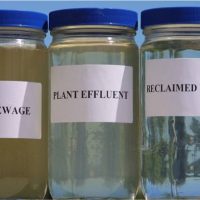 A new research article has been published as part of research activities funded by the POWER project (Political and Social Awareness on Water Environmental Challenges). The latest article is titled “Upscaling Urban Recycled Water Schemes: An Analysis of the Presence of Required Governance Conditions in the City of Sabadell (Spain)” and is co-authored by Josep Pinyol Alberich, Farhad Mukhtarov, Carel Dieperink, Peter Driessen and Annelies Broekman. The article discusses the barriers and opportunities of scaling up successful urban water reuse schemes with a case study of Sabadell, a satellite municipality of Barcelona, Spain.
A new research article has been published as part of research activities funded by the POWER project (Political and Social Awareness on Water Environmental Challenges). The latest article is titled “Upscaling Urban Recycled Water Schemes: An Analysis of the Presence of Required Governance Conditions in the City of Sabadell (Spain)” and is co-authored by Josep Pinyol Alberich, Farhad Mukhtarov, Carel Dieperink, Peter Driessen and Annelies Broekman. The article discusses the barriers and opportunities of scaling up successful urban water reuse schemes with a case study of Sabadell, a satellite municipality of Barcelona, Spain.
Based on experiences from other countries, such as USA (California, Los Angeles), Australia (Toowoomba), The Netherlands (Utrecht) and other cases, a number of barriers to urban water reuse schemes have been identified and discussed. Then a detailed literature review yielded a set of governance conditions that may be conducive to such schemes’ implementation, including their piloting and scaling up. These conditions are as follows:
(1) policy leadership
(2) policy coordination
(3) availability of financial resources
(4) awareness of a problem
(5) the presence of a public forum
With this framework, the case study of Sabadell, a progressive town within Spain’s Catalonia region, has been analyzed. We found that most of conditions were present apart from the public forum where the issue can be openly and thoroughly discussed. The procedure of the schemes without public support may backfire, as it did in California and Utrecht, and thus, a functioning way to obtain a public buy-in is necessary in Sabadell. Some very useful examples have been drawn from the case study in a neighboring municipality of Terrassa.
The article is open-access and is published in the journal Water. It may be downloaded here.